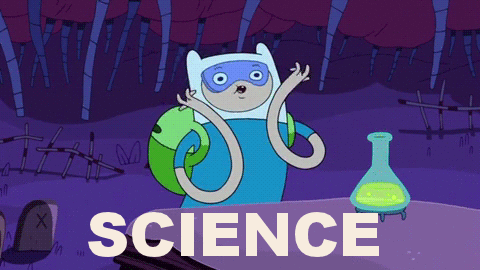A Calorie REALLY ISN'T a Calorie

Espressocycle
Posts: 2,245 Member
We absorb more of the calories in "processed" foods (not just packaged foods, anything cooked, pureed, etc.), especially carbs. We burn off 20% of the calories in protein just digesting it. So it turns out that whole clean eating/whole foods thing has some truth to it. 2,000 calories of Twinkies delivers more calories to your body than 2,000 calories of vegetables and meat. I'm still gonna have a slice of cherry pie tonight though. 
http://www.livescience.com/26799-calorie-counts-inaccurate.html
Highlights:
For the most part, the inaccuracies are small, but some foods may have actual caloric values that differ from the estimated values by as much as 50 percent, experts say
Calories in processed foods are likely close to the values that the Atwater system estimates. For example, if you eat a mashed potato that's been calculated by the Atwater system to contain 300 calories, you're likely getting most of those calories, Carmody said. But if you eat a whole, unprocessed potato of the same size, you'll take in around 200 calories, she said.
When we digest food, we also give off energy as heat. The amount of heat we radiate depends upon the exact components of the food. For proteins, it's about 20 to 30 percent of the food's calories — so if we eat 100 calories worth of protein, we get about 80 calories from it, Carmody said. For fats, it's much less, about 0 to 3 percent, she said. (So if we eat 100 calories worth of fat, we'd get 97 of those calories.)
For example, the almond study, which also accounted for calories lost in feces, suggested that some of the fat in whole almonds is locked away in a structure our bodies can't digest. While the Atwater system says a serving of whole almonds has about 170 calories, the almond study found it actually has about 130.
http://www.livescience.com/26799-calorie-counts-inaccurate.html
Highlights:
For the most part, the inaccuracies are small, but some foods may have actual caloric values that differ from the estimated values by as much as 50 percent, experts say
Calories in processed foods are likely close to the values that the Atwater system estimates. For example, if you eat a mashed potato that's been calculated by the Atwater system to contain 300 calories, you're likely getting most of those calories, Carmody said. But if you eat a whole, unprocessed potato of the same size, you'll take in around 200 calories, she said.
When we digest food, we also give off energy as heat. The amount of heat we radiate depends upon the exact components of the food. For proteins, it's about 20 to 30 percent of the food's calories — so if we eat 100 calories worth of protein, we get about 80 calories from it, Carmody said. For fats, it's much less, about 0 to 3 percent, she said. (So if we eat 100 calories worth of fat, we'd get 97 of those calories.)
For example, the almond study, which also accounted for calories lost in feces, suggested that some of the fat in whole almonds is locked away in a structure our bodies can't digest. While the Atwater system says a serving of whole almonds has about 170 calories, the almond study found it actually has about 130.
0
Replies
-
I know I've mentioned this before but I'm 70 pages or so into the book 'Cooked' and I'm really enjoying it. I'm in the science and evolution part. That of course was just after the Whole Hog BBQ part of the book. Good stuff. It does talk about calories and energy needed to run various "energy hogs" within our systems.0
-
-
Now I want BBQ. Thanks a lot.0
-
The folly in any such argument is the acute nature of these studies. 12 weeks, 12 days? what about 12 years? TEF is definitely a valid argument for protein and alcohol being more thermogenic than the other substrates. Let's leave alcohol out, since this is a fitness/weight loss forum.
Over long periods of time, and the studies that have been carried on over 52 weeks or more (what little exists to be honest), the TEF values of foods seriously no longer matter. Also, fiber is rated very high on the thermic scale, thereby making high fiber carbs very thermic as well.
Calories, when viewed in their compartmental contexts may not be all equal, but how applicable is talking about a carb in the absence of fats and fibers? Or fats in the absence of carbs and proteins? Is it fair to say that carbs and proteins are not thermically equal when the abundance of carbs are ingested along side of proteins, evening out their thermic values? These kinds of studies are myopic because we hardly ever eat just slices of white bread. Or steak without fat in it. You cannot isolate macros to the degree that is indicated in such studies, so how can you apply the science here?1 -
 0
0 -
You cannot isolate macros to the degree that is indicated in such studies, so how can you apply the science here?
Well, sure, but if 100 calories of almonds is really 75 calories to my body vs. 100 calories of cookies, that makes a difference in the choices I might make if counting calories on this site.
BUT what's this about alcohol being more thermogenic? Because if that means I can drink more whiskey and stay under goal, sign me up!0 -
My own research turned up the crudeness of the methodology by which they come up with the calories on packages. It made me decide that, for me, weighing and measuring food is something I should only bother with roughly since the numbers are not all that precise anyway.
It doesn't stop me from counting calories though. Rough estimates are still useful.0 -
Good article. It makes sense. But at least as they said, the worst that happens is that we overestimate.0
-
Thermic effect of food is represented on the energy output side of the equation. A calorie is still a calorie, you just increase energy expenditure slightly when eating a higher protein diet.1
-
You cannot isolate macros to the degree that is indicated in such studies, so how can you apply the science here?
Well, sure, but if 100 calories of almonds is really 75 calories to my body vs. 100 calories of cookies, that makes a difference in the choices I might make if counting calories on this site.
BUT what's this about alcohol being more thermogenic? Because if that means I can drink more whiskey and stay under goal, sign me up!
How many obese alcoholics do you see? Haha...yes it's up there. very high TEF, like 20-30% in some individuals. Also alcohol abuse leads to hunger suppression. How's that for dangling the carrot?0 -
surely if you're eating less anyway that just means most foods you're actually eating less than that total figure anyway?
also figuring processed foods are easily absorbed than non processed food makes sense really, 30 small bits of ice melt faster than one big bit of equal volume so 30 small bits of food in acid will digest better than one big bit of the same quantity0 -
You cannot isolate macros to the degree that is indicated in such studies, so how can you apply the science here?
Well, sure, but if 100 calories of almonds is really 75 calories to my body vs. 100 calories of cookies, that makes a difference in the choices I might make if counting calories on this site.
BUT what's this about alcohol being more thermogenic? Because if that means I can drink more whiskey and stay under goal, sign me up!
How many obese alcoholics do you see? Haha...yes it's up there. very high TEF, like 20-30% in some individuals. Also alcohol abuse leads to hunger suppression. How's that for dangling the carrot?
This is a ridiculous argument. Alcohol in the body prevents fat loss.
And I was an obese alcoholic.0 -
i think the biggest problem is people not applying common sense to their diet rather than over exagerated science0
-
i think the biggest problem is people not applying common sense to their diet rather than over exagerated science
Or people are looking for justification to eat more food. They'll see results... Whether or not they are the results they wanted are another thing.
cookie and whisky diet sounds like a winner.0 -
Now I want BBQ. Thanks a lot.
Smokey slow BBQ over real fire.0 -
How many obese alcoholics do you see? Haha...yes it's up there. very high TEF, like 20-30% in some individuals. Also alcohol abuse leads to hunger suppression. How's that for dangling the carrot?
Hmm, so I have to become an alcoholic for the booze not to count? I really just want a beer and a shot after work.0 -
We absorb more of the calories in "processed" foods (not just packaged foods, anything cooked, pureed, etc.), especially carbs. We burn off 20% of the calories in protein just digesting it. So it turns out that whole clean eating/whole foods thing has some truth to it. 2,000 calories of Twinkies delivers more calories to your body than 2,000 calories of vegetables and meat. I'm still gonna have a slice of cherry pie tonight though.

http://www.livescience.com/26799-calorie-counts-inaccurate.html
Highlights:
For the most part, the inaccuracies are small, but some foods may have actual caloric values that differ from the estimated values by as much as 50 percent, experts say
Calories in processed foods are likely close to the values that the Atwater system estimates. For example, if you eat a mashed potato that's been calculated by the Atwater system to contain 300 calories, you're likely getting most of those calories, Carmody said. But if you eat a whole, unprocessed potato of the same size, you'll take in around 200 calories, she said.
When we digest food, we also give off energy as heat. The amount of heat we radiate depends upon the exact components of the food. For proteins, it's about 20 to 30 percent of the food's calories — so if we eat 100 calories worth of protein, we get about 80 calories from it, Carmody said. For fats, it's much less, about 0 to 3 percent, she said. (So if we eat 100 calories worth of fat, we'd get 97 of those calories.)
For example, the almond study, which also accounted for calories lost in feces, suggested that some of the fat in whole almonds is locked away in a structure our bodies can't digest. While the Atwater system says a serving of whole almonds has about 170 calories, the almond study found it actually has about 130.
Fantastic and interesting information! Thank you for sharing!0 -
You cannot isolate macros to the degree that is indicated in such studies, so how can you apply the science here?
Well, sure, but if 100 calories of almonds is really 75 calories to my body vs. 100 calories of cookies, that makes a difference in the choices I might make if counting calories on this site.
BUT what's this about alcohol being more thermogenic? Because if that means I can drink more whiskey and stay under goal, sign me up!
How many obese alcoholics do you see? Haha...yes it's up there. very high TEF, like 20-30% in some individuals. Also alcohol abuse leads to hunger suppression. How's that for dangling the carrot?
This is a ridiculous argument. Alcohol in the body prevents fat loss.
And I was an obese alcoholic.
It wasn't an argument at all. Nor did I state that alcohol promotes weight loss. Though perhaps in some cases it does. These are not the cases we should be modeling our weight loss after, obviously. I was just bantering with OP about whiskey..which is something I enjoy from time to time as well. Cookies, not my sort of thing!0 -
This is a good examination of the subject:
http://evolvinghealthscience.blogspot.co.uk/2013/02/calories-arent-right-on-labels-and.htmlSo, perhaps that's a better way to look at the problem: labels wouldn't be so misleading if we thought of their Kcal listings not as total Kcals, but as max Kcals you could get from any given food. And, if one is to determine some kind of main takeaway dietary message from all this discussion, it may be simply this: that by eating more whole, raw foods (like other animals and like our pre-human ancestors did), you can count on fewer Kcals (thank your microbes for halving the amounts of Kcals you absorb once food reaches your intestine); and you can count on greater digestive and metabolic costs by eating well-balanced meals containing plenty of fiber and protein per meal (think "python diet").1 -
For example, if you eat a mashed potato that's been calculated by the Atwater system to contain 300 calories, you're likely getting most of those calories, Carmody said. But if you eat a whole, unprocessed potato of the same size, you'll take in around 200 calories, she said.
THEY MADE PEOPLE IN THIS STUDY EAT RAW POTATOES?! That's just mean.0 -
To study these effects, Secor's lab wrapped a steak around a rat and fed it to the snake (apparently, "you can feed anything to a python as long as you put a rat's head on it").
The more you know...0 -
I think I have read too many topics in the forums. I swear this covers at least three or four topics I have read here before.
Your definition of "processing" pretty much means cooking and preparing food in anyway, and not the standard definition of "processing" that clean eaters refer to as being prepared at a factory with additives. Therefore, I don't really feel like this study supports your position.
Unless your concept of clean-eating means to eat only raw food?0 -
In more recent news,
 0
0 -
For example, if you eat a mashed potato that's been calculated by the Atwater system to contain 300 calories, you're likely getting most of those calories, Carmody said. But if you eat a whole, unprocessed potato of the same size, you'll take in around 200 calories, she said.
THEY MADE PEOPLE IN THIS STUDY EAT RAW POTATOES?! That's just mean.
:laugh: :laugh: :laugh:0 -
THEY MADE PEOPLE IN THIS STUDY EAT RAW POTATOES?! That's just mean.
gag!0 -
I think I have read too many topics in the forums. I swear this covers at least three or four topics I have read here before.
Your definition of "processing" pretty much means cooking and preparing food in anyway, and not the standard definition of "processing" that clean eaters refer to as being prepared at a factory with additives. Therefore, I don't really feel like this study supports your position.
Unless your concept of clean-eating means to eat only raw food?
I think the idea here is that the more processing a food goes through (be it mechanical, cooking, chewing...etc.), the more calories you absorb from it. So, you'll like absorb nearly 100% of the calories in an oreo, but not as much in a steak that you cooked medium rare. If you want to absorb even less calories from your steak, eat it raw. This is just my interpretation of the information.0 -
I think I have read too many topics in the forums. I swear this covers at least three or four topics I have read here before.
Your definition of "processing" pretty much means cooking and preparing food in anyway, and not the standard definition of "processing" that clean eaters refer to as being prepared at a factory with additives. Therefore, I don't really feel like this study supports your position.
Unless your concept of clean-eating means to eat only raw food?
I think the idea here is that the more processing a food goes through (be it mechanical, cooking, chewing...etc.), the more calories you absorb from it. So, you'll like absorb nearly 100% of the calories in an oreo, but not as much in a steak that you cooked medium rare. If you want to absorb even less calories from your steak, eat it raw. This is just my interpretation of the information.
mmmmm yummy :sick: I like medium rare but raw is not an option.0 -
I think I have read too many topics in the forums. I swear this covers at least three or four topics I have read here before.
Your definition of "processing" pretty much means cooking and preparing food in anyway, and not the standard definition of "processing" that clean eaters refer to as being prepared at a factory with additives. Therefore, I don't really feel like this study supports your position.
Unless your concept of clean-eating means to eat only raw food?
I think the idea here is that the more processing a food goes through (be it mechanical, cooking, chewing...etc.), the more calories you absorb from it. So, you'll like absorb nearly 100% of the calories in an oreo, but not as much in a steak that you cooked medium rare. If you want to absorb even less calories from your steak, eat it raw. This is just my interpretation of the information.
As Sidesteel pointed out, your body will absorb 100% of the calories regardless... however, your body might use some of those calories in the process of digesting the food (depending upon how processed it is). An Oreo requires some energy for digestion, but a raw potato requires more. It's a bad study that only weakly supports the OP's position.1 -
How many obese alcoholics do you see? Haha...yes it's up there. very high TEF, like 20-30% in some individuals. Also alcohol abuse leads to hunger suppression. How's that for dangling the carrot?
Hmm, so I have to become an alcoholic for the booze not to count? I really just want a beer and a shot after work.
I was reading a review on this and there may be some truth. It's also a sex based effect and because men have more enzymes to break the alcohol down they actually consume more calories from it. So a glass of wine a day might be more effective for keeping a woman's BMI down than a man. I guess become an alcoholic female.
Interesting question OP. It's why I roll my eyes when people say nutritional science. It's really all so new that most of it is just an estimate, a best guess. We truly dont know how many calories are in that burger, and there are so many different variables from how that burger went from cow to burger, how it was stored, prepared, how much your body actually metabolizes. Then you throw in the additional confounding variable of the human body and it just makes it one big guessing game.
The body is very efficient though and will remove the essential nutrients and calories given it has an adequate substrate, so I still maintain you can be an obese raw eater or an obese processed eater.0 -
As Sidesteel pointed out, your body will absorb 100% of the calories regardless... however, your body might use some of those calories in the process of digesting the food (depending upon how processed it is). An Oreo requires some energy for digestion, but a raw potato requires more. It's a bad study that only weakly supports the OP's position.
Whilst TEF is generally not worth worrying about the point David Despain makes in the article I linked is an excellent one - you are more likely to get at the higher end of the maximum deliverable calories as shown on a food label etc the more processing the food has undergone.
Therefore a whole food, minimally "processed" diet is more likely to deliver less calories than a diet higher in junk food although they may have both been calculated as say 2,000 calories or whatever the target figure is by the individual based on food labels etc.
As a result there is a greater buffer against miscalculation and you have to be more careful the more processed foods you are consuming to ensure preserving your deficit.
Now someone pass me the steak tartare...0
This discussion has been closed.
Categories
- All Categories
- 1.4M Health, Wellness and Goals
- 398.5K Introduce Yourself
- 44.7K Getting Started
- 261K Health and Weight Loss
- 176.4K Food and Nutrition
- 47.7K Recipes
- 233K Fitness and Exercise
- 462 Sleep, Mindfulness and Overall Wellness
- 6.5K Goal: Maintaining Weight
- 8.7K Goal: Gaining Weight and Body Building
- 153.5K Motivation and Support
- 8.4K Challenges
- 1.4K Debate Club
- 96.5K Chit-Chat
- 2.6K Fun and Games
- 4.8K MyFitnessPal Information
- 17 News and Announcements
- 21 MyFitnessPal Academy
- 1.5K Feature Suggestions and Ideas
- 3.2K MyFitnessPal Tech Support Questions













